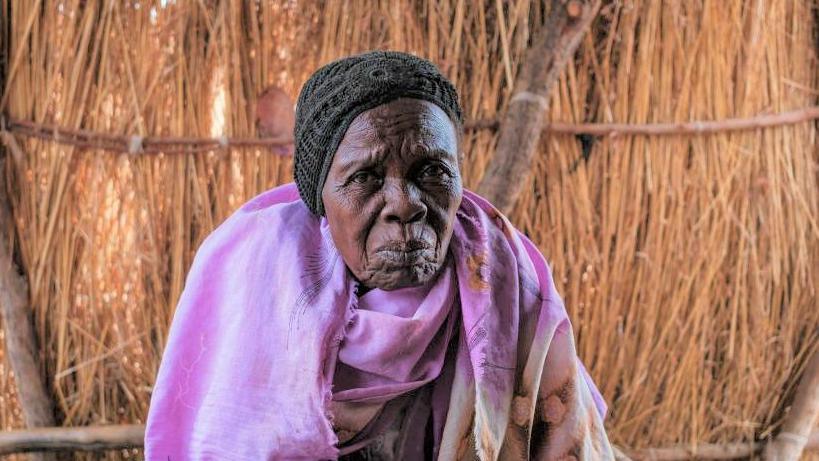Sudan in danger of becoming a failed state, aid chief warns

Millions of people have been forced to flee their homes in Sudan
- Published
War-stricken Sudan is in danger of becoming another failed state because civil society is disintegrating amid a proliferation of armed groups, the head of a leading international aid agency has told the BBC.
As well as the two main warring parties in Sudan - the army and the paramilitary Rapid Support Forces (RSF) - there are many smaller "ethnic armies" looting and going "berserk" on civilians, Jan Egeland, head of the Norwegian Refugee Council (NRC), said.
"The parties are tearing down their own houses, they are massacring their own people," he said.
For 19 months, there has been a brutal power struggle between the army and the RSF, that has forced more than 10 million people to flee their homes and pushed the country to the brink of starvation.
"All that I saw confirms that this is indeed the biggest humanitarian emergency on our watch, the biggest hunger crisis, the biggest displacement crisis," Mr Egeland said, following a trip to Sudan.
In September, the UN World Health Organization (WHO) said starvation in Sudan was "almost everywhere".
Soup kitchens have been forced to close because they were underfunded. Egeland said the lack of humanitarian response meant remaining sources of aid were simply "delaying deaths instead of preventing them".
"Most of Sudan is starving, it's starving," he said, adding that starvation has been used as a method of warfare.
Some food security specialists fear that as many as 2.5 million people could die from hunger by the end of this year.
Mr Egeland warned that the world was "failing Sudan completely" by not doing enough.
He told the BBC if Europe wanted to avoid a refugee crisis, it needed to invest in "aid, protection and peace in this corner of the world".
"It's an underfunded operation, even though it's the world's biggest emergency," he said.
Thousands of people have been killed since a civil war broke out. Rights groups have also expressed fears that there may be ethnic cleansing and genocide in Sudan.
Despite this, peace talks between the RSF and the army have been fruitless.
"The war will stop when these warlords feel they have more to lose by continuing fighting, than by doing the sensible thing." Egeland said.
More BBC stories on Sudan:

Go to BBCAfrica.com, external for more news from the African continent.
Follow us on Twitter @BBCAfrica, external, on Facebook at BBC Africa, external or on Instagram at bbcafrica, external